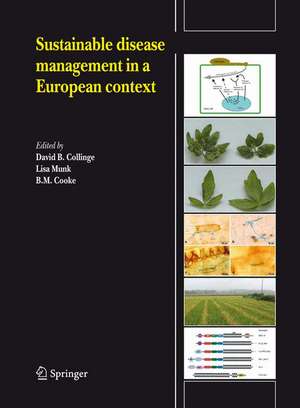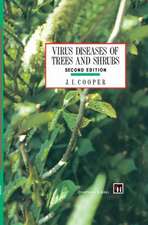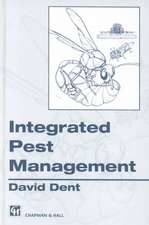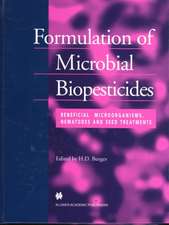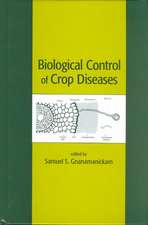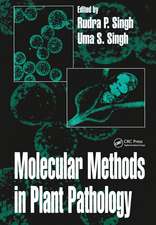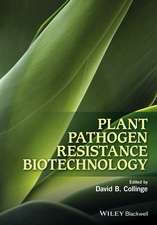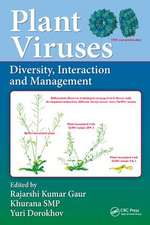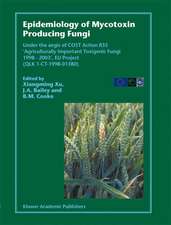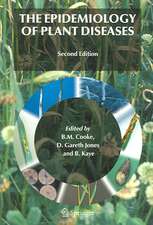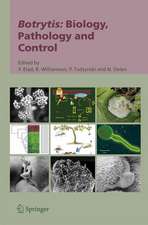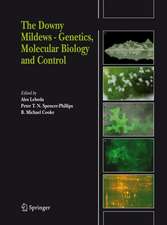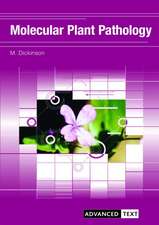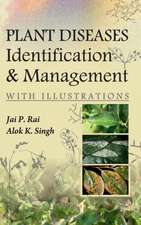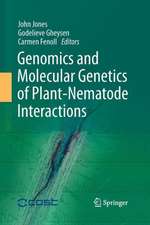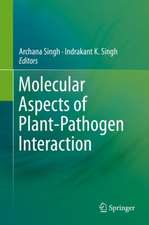Sustainable disease management in a European context
Editat de David B. Collinge, Lisa Munk, B. Michael Cookeen Limba Engleză Hardback – 2 sep 2008
| Toate formatele și edițiile | Preț | Express |
|---|---|---|
| Paperback (1) | 946.41 lei 6-8 săpt. | |
| SPRINGER NETHERLANDS – 19 oct 2010 | 946.41 lei 6-8 săpt. | |
| Hardback (1) | 798.75 lei 38-44 zile | |
| SPRINGER NETHERLANDS – 2 sep 2008 | 798.75 lei 38-44 zile |
Preț: 798.75 lei
Preț vechi: 1050.98 lei
-24% Nou
Puncte Express: 1198
Preț estimativ în valută:
152.83€ • 159.59$ • 126.21£
152.83€ • 159.59$ • 126.21£
Carte tipărită la comandă
Livrare economică 11-17 aprilie
Preluare comenzi: 021 569.72.76
Specificații
ISBN-13: 9781402087790
ISBN-10: 1402087799
Pagini: 200
Ilustrații: V, 192 p.
Dimensiuni: 210 x 279 x 15 mm
Greutate: 0.66 kg
Ediția:2008
Editura: SPRINGER NETHERLANDS
Colecția Springer
Locul publicării:Dordrecht, Netherlands
ISBN-10: 1402087799
Pagini: 200
Ilustrații: V, 192 p.
Dimensiuni: 210 x 279 x 15 mm
Greutate: 0.66 kg
Ediția:2008
Editura: SPRINGER NETHERLANDS
Colecția Springer
Locul publicării:Dordrecht, Netherlands
Public țintă
ResearchCuprins
Foreword.- What are the prospects for genetically engineered, disease resistant plants?.- Priming: it’s all the world to induced disease resistance.- Resistance proteins: scouts of the plant innate immune system.- How can we exploit functional genomics approaches for understanding the nature of plant defences? Barley as a case study.- Roles of reactive oxygen species in interactions between plants and pathogens.- Mechanisms modulating fungal attack in post-harvest pathogen interactions and their control.- What can we learn from clubroots: alterations in host roots and hormone homeostasis caused by Plasmodiophora brassicae.- Problems with disseminating information on disease control in wheat and barley to farmers.- Control of plant diseases by natural products: Allicin from garlic as a case study.- Use of Coniothyrium minitans as a biocontrol agent and some molecular aspects of sclerotial mycoparasitism.- International standards for the diagnosis of regulated pests.- Quality assurance in plant health diagnostics – the experience of the Danish Plant Directorate.- Tracking fungi in soil with monoclonal antibodies.- Exploiting generic platform technologies for the detection and identification of plant pathogens.- The challenge of providing plant pest diagnostic services for Africa.- Application of pathogen surveys, disease nurseries and varietal resistance characteristics in an IPM approach for the control of wheat yellow rust.- Molecular approaches for characterization and use of natural disease resistance in wheat.- Integration of breeding and technology into diversification strategies for disease control in modern agriculture.
Textul de pe ultima copertă
The main theme of the book is sustainable disease management in a European context. Some of the questions addressed are: How does society benefit from plant pathology research? How can new molecular approaches solve relevant problems in disease management? What other fields can we exploit in plant pathology research? What challenges are associated with free trade across the new borders? How can we contribute to solving problems of developing countries? How does plant pathology contribute to food quality and safety? How does globalization/internationalization affect teaching and extension in plant pathology?
Caracteristici
The main theme of the book is sustainable disease management in a European context The content is based on up-to-date case studies and reviews of current topics aimed at graduate and post-graduate student level
